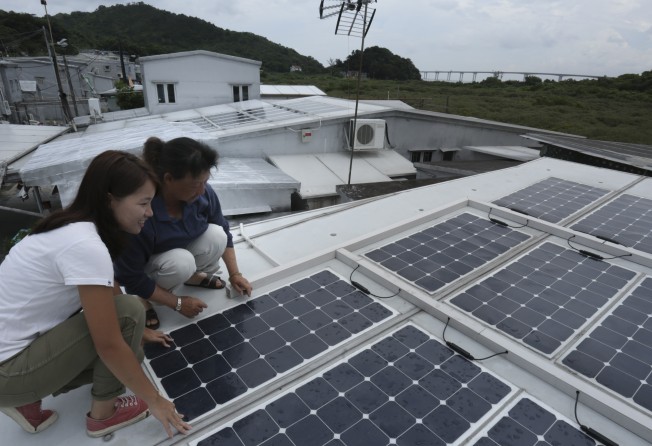Green energy push in Hong Kong with feed-in tariffs is welcome, but implementation is key

The recent discussion paper submitted to the Legislative Council’s environmental affairs panel, detailing the price for renewable energy in the upcoming feed-in tariff system, has adopted the international benchmark of a “10-year payback principle”.
Greenpeace believes that this practice will increase the economic incentive for Hong Kong citizens, companies and NGOs to install solar energy systems.
The feed-in tariff system is a policy mechanism that aims to promote the uptake of renewable energy, and is widely used around the world, including in mainland China, Taipei, Seoul and Australia.
Under the upcoming Scheme of Control Agreement, the feed-in tariff system, renewable energy certificates and a number of energy-saving initiatives will be introduced, with these policies and initiatives to last for 15 years, until 2033.
Feed-in tariff rates will be paid by the two power companies to anyone who generates their own green electricity through renewable energy installations, such as for solar and wind energy.
Though this is good news for the environment, the Hong Kong government has a duty to ensure a sound implementation of the feed-in tariff system and promote the uptake of renewable energy in the following ways.
First, it must reduce red tape and confirm a straightforward and clear feed-in tariff application process, so the public gets clear guidelines on its practical implementation.
Second, the government should evaluate the current policies, especially those of buildings, and identify and tackle any legal barriers to the installation of renewable energy systems.
Last but not least, the government should actively explore and implement additional green policies and initiatives – for example, the possibility of issuing retail green bonds to develop solar energy systems at reservoirs and sewage systems.
This initiative not only can realise Hong Kong’s solar energy potential, but will also encourage public participation and investment.
Walton Li, campaigner, Greenpeace